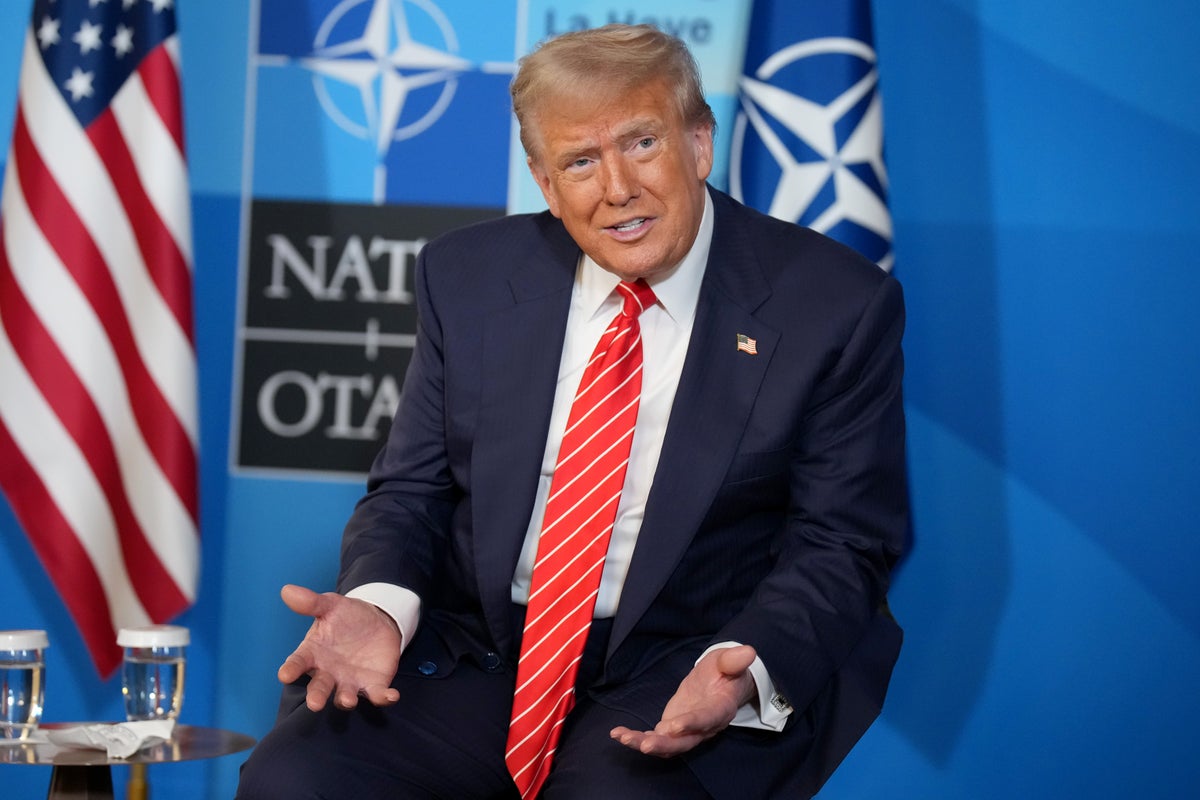World·New
Iranian authorities are pivoting from a ceasefire with Israel to intensify an internal security crackdown across the country with mass arrests, executions and military deployments, particularly in the restive Kurdish region, officials and activists said.
Officials and activists say hundreds have been arrested, three executions reported
Thomson Reuters
· Posted: Jun 25, 2025 5:52 PM EDT | Last Updated: 7 minutes ago
Iranian authorities are pivoting from a ceasefire with Israel to intensify an internal security crackdown across the country with mass arrests, executions and military deployments, particularly in the restive Kurdish region, officials and activists say.
Within days of Israel's airstrikes beginning on June 13, Iranian security forces started a campaign of widespread arrests accompanied by an intensified street presence based around checkpoints, sources have told CBC and Reuters.
One man in Tehran, who responded to a CBC News callout via WhatsApp but did not provide his name, said Wednesday that security officers are stopping people at pop-up checkpoints around the city and asking them to show their phones and open their messaging apps.
"It will take you only one tweet or one social network post to be arrested if the content is believed sensitive by the state," he said.
Another man told CBC he feels "a deep sense of fear" that Ayatollah Ali Khamenei and his regime may have secured their survival and will turn their anger inward as they did in the 1980s, with crackdowns on their own people and mass executions.
Some in Israel and exiled opposition groups had hoped the military campaign, which targeted Revolutionary Guards and internal security forces as well as nuclear sites, would spark a mass uprising and the overthrow of the Islamic Republic.
But Alam Saleh, speaking with CBC from Tehran Wednesday, said he knows many Iranians who were critical of the regime and have changed tone in recent days, now rallying around the flag in the face of what they see as an unprovoked and unjustified war.
"What was the point, what Israel and United States has achieved, in bombing Iran for 12 days?" Saleh said.
"The only thing that they probably achieved is to make Iran never, never again trust these two countries."
WATCH | Canadian-Iranian talks about the war: CBC's Rosemary Barton speaks with Canadian-Iranian Mina Morshed about Israel-Iran war
There has been no sign yet of any significant protests against the authorities.
However, one senior Iranian security official and two other senior officials briefed on internal security issues said the authorities were focused on the threat of possible internal unrest, particularly in Kurdish areas.
Revolutionary Guard and Basij paramilitary units were put on alert and internal security was now the primary focus, said the senior security official.

The official said authorities were worried about Israeli agents, ethnic separatists and the People's Mujahideen Organisation of Iran, an exiled opposition group that has previously staged attacks inside Iran.
Activists within the country are lying low.
"We are being extremely cautious right now because there's a real concern the regime might use this situation as a pretext," a rights activist in Tehran, who was jailed during mass protests in 2022, told Reuters.
The activist said he knew dozens of people who had been summoned by authorities and either arrested or warned against any expressions of dissent.
Kurdish groups say they're being targeted
Iranian rights group HRNA said on Monday it had recorded arrests of 705 people on political or security charges since the start of the war.
Many of those arrested have been accused of spying for Israel, HRNA said.
Iranian state media reported three were executed on Tuesday in Urmia, near the Turkish border, and the Iranian-Kurdish rights group Hengaw said they were all Kurdish.
Iran's Foreign and Interior Ministries did not immediately respond to requests for comment.
WATCH | Israelis, Iranians discuss ceasefire: Israelis, Iranians skeptical of lasting ceasefire
One of the officials briefed on security said troops had been deployed to the borders of Pakistan, Iraq and Azerbaijan to stop infiltration by what the official called terrorists.
The other official briefed on security acknowledged that hundreds had been arrested.
Iran's mostly Sunni Muslim Kurdish and Baluch minorities have long been a source of opposition to the Islamic Republic, chafing against rule from the Persian-speaking, Shia government in Tehran.
The three main Iranian Kurdish separatist factions based in Iraqi Kurdistan said some of their activists and fighters had been arrested and described widespread military and security movements by Iranian authorities.
Ribaz Khalili from the Democratic Party of Iranian Kurdistan (KDPI) said Revolutionary Guards units had deployed in schools in Iran's Kurdish provinces within three days of Israel's strikes beginning and gone house-to-house for suspects and arms.
The Guards had taken protective measures too, evacuating an industrial zone near their barracks and closing major roads for their own use in bringing reinforcements to Kermanshah and Sanandaj, two major cities in the Kurdish region.
A cadre from the Free Life Party of Kurdistan (PJAK), who gave her nom de guerre of Fatma Ahmed, said the party had counted more than 500 opposition members being detained in Kurdish provinces since the airstrikes began.
Ahmed and an official from the Kurdish Komala party, who spoke on condition of anonymity, both described checkpoints being set up across Kurdish areas with physical searches of people as well as checks of their phones and documents.
With files from CBC's Briar Stewart

 5 hours ago
1
5 hours ago
1









